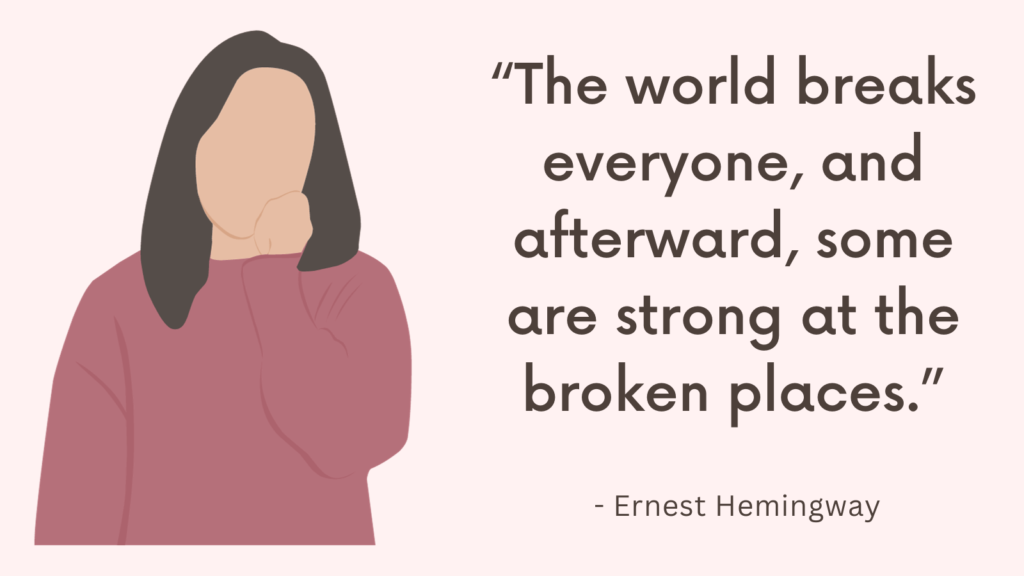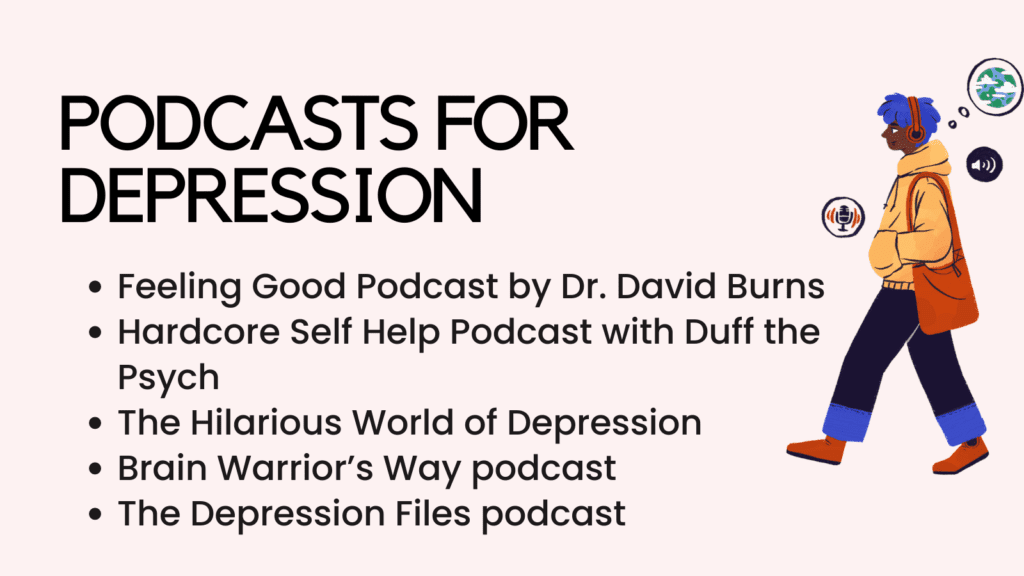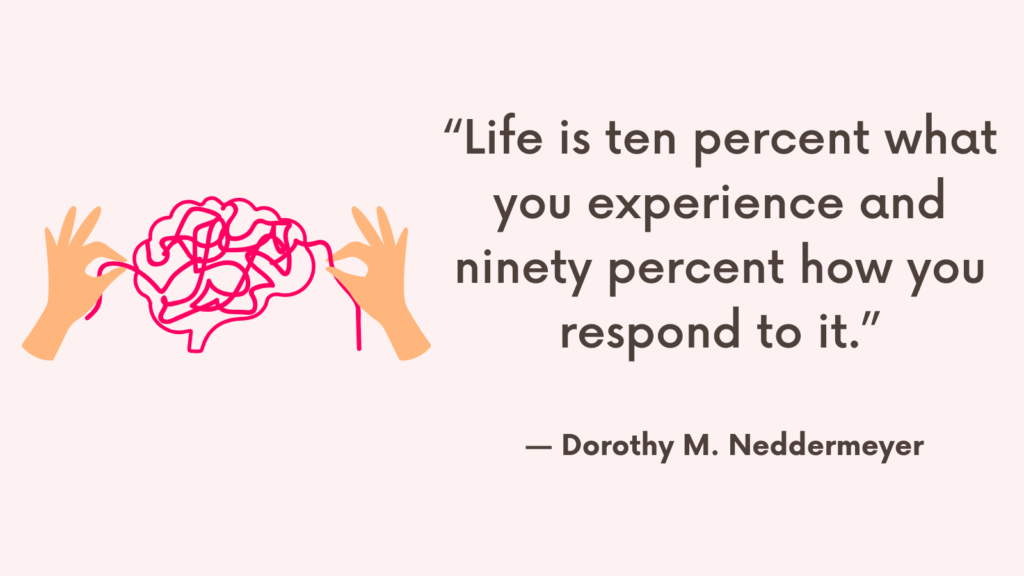In this post, you’re learn all about dating someone with depression.
Top 10 Tips for Dating Someone with Depression
Dating someone with depression can be challenging, but with understanding, support, and open communication, it is possible to build a strong and fulfilling relationship.
Here are some tips for dating someone with depression:
1. Educate Yourself
Take the time to learn about depression.
Understand its symptoms, causes, and available treatments.
This knowledge will help you empathize and provide better support.
2. Be Patient and Understanding
Depression is a complex mental health condition that can affect a person’s mood, energy levels, and perspective on life.
Be patient when your partner is experiencing low moods or lacks motivation.
Avoid minimizing their feelings or telling them to “just snap out of it.”
Instead, validate their emotions and let them know you are there for them.
Related: Top 23 Toxic Positivity Quotes (+FREE Validating Statements Worksheet)
3. Listen and Communicate
Create a safe space for open and honest communication.
Encourage your partner to express their thoughts and feelings without judgment.
Active listening, empathy, and validating their experiences can strengthen your bond.
4. Offer Support
Let your partner know they can lean on you for support.
Ask them how you can help during difficult times.
Simple gestures like checking in regularly, offering a shoulder to lean on, or accompanying them to therapy appointments can make a significant difference.
Related: Top 7 Tips On How To Create A Conscious Relationship Using ACT
5. Establish Boundaries
It’s essential to strike a balance between offering support and maintaining your own well-being.
Understand your limitations and communicate your needs as well.
Establish boundaries that foster mutual respect and prevent emotional burnout.
6. Practice Self-Care
Taking care of your mental and emotional well-being is crucial.
Engage in activities that bring you joy and fulfillment, maintain a supportive social network, and seek therapy if needed.
By prioritizing your self-care, you can be better equipped to support your partner.
Related: Best 100 Self Care Affirmations To Honor Yourself
7. Avoid Taking It Personally
Depression can impact a person’s mood, behavior, and perception of themselves and others.
Remember that your partner’s low moods or withdrawal are not a reflection of your worth or the relationship.
Try not to take it personally and remind yourself that it is the depression influencing their actions.
8. Encourage Healthy Lifestyle Choices
Physical well-being is closely linked to mental health.
Encourage your partner to engage in regular exercise, eat a balanced diet, and maintain good sleep hygiene.
Offer to partake in these healthy habits together.
Related: Best 6 Mindfulness Exercises For Beginners (+FREE Resources)
9. Take Time for Fun and Laughter
Incorporating laughter and enjoyable activities into your relationship can help alleviate some of the depressive symptoms.
Plan dates or engage in hobbies that bring joy to both of you.
10. Don’t Enable Self-Destructive Behaviors
While it’s important to offer support, it’s equally vital to avoid enabling self-destructive behaviors such as substance abuse or isolation.
Encourage healthy coping mechanisms and suggest professional help when necessary.
Related: Am I Self-Destructive Quiz

What Makes Dating Someone with Depression Challenging?
Dating someone with depression can present various challenges that may affect both partners in the relationship.
Understanding these challenges is important for navigating the relationship successfully.
Here are some factors that can make dating someone with depression challenging:
1. Fluctuating Moods
Depression often causes unpredictable mood swings.
Your partner may experience periods of sadness, irritability, and emotional disconnection.
These mood fluctuations can be difficult to handle, especially if you are unsure how to respond or offer support.
2. Lack of Energy and Motivation
Depression can drain a person’s energy and motivation, making it challenging for them to engage in everyday activities or participate in social events.
This lack of initiative may lead to feelings of frustration or confusion for both partners.
3. Communication Difficulties
Depression can affect a person’s ability to express their emotions clearly.
Your partner may struggle to articulate their needs, leading to misunderstandings or miscommunications.
It is important to be patient and understanding, as clear communication is essential for building a strong relationship.
Related: 4 Essential Keys To Effective Communication
4. Feelings of Guilt and Self-Blame
People with depression may experience overwhelming feelings of guilt, self-blame, or unworthiness.
They may question why they cannot simply “snap out” of their depressive state, which can further contribute to their low self-esteem.
As a partner, it is important to offer reassurance and support while understanding that their depression is not their fault.
5. Impact on Intimacy
Depression can affect one’s libido and desire for intimacy.
Your partner may experience a decreased interest in sex or display physical and emotional withdrawal.
This change in intimacy levels can cause strain in the relationship if not communicated and understood effectively.
Related: Emotional Intimacy Test (+13 Tips On How To Increase Emotional Intimacy In A Relationship?)
6. Balancing Support and Personal Boundaries
Supporting your partner with depression requires empathy and compassion.
However, it is crucial to establish personal boundaries and take care of your own mental well-being.
Striking a balance between providing support and maintaining your own emotional health can be challenging at times.
7. Fear of Triggering Episodes
Sometimes, partners of individuals with depression may fear saying or doing the wrong thing, potentially triggering or worsening their depressive episodes.
This fear can create tension and anxiety in the relationship, requiring open communication and active effort to understand each other’s triggers.
Related: Depression After Quitting Drinking: 7 Ways to Cope
8. The Stigma Surrounding Mental Health
Society’s stigma and misunderstanding about mental health can impact both partners in a relationship.
Your partner with depression may face judgment or discrimination, making it difficult for them to open up about their experiences.
As a partner, providing a safe and non-judgmental space is crucial.
9. Challenges with Future Planning
Depression can make it difficult for individuals to envision a future or set concrete goals.
If you and your partner have different outlooks on long-term plans, it can introduce additional stress and uncertainty into the relationship.
10. Impact on Social Life
Depression can lead to isolation and withdrawal from social activities.
This can hinder shared experiences and may result in feelings of loneliness or disconnect within the relationship.
Encouraging your partner to engage in social interactions while being understanding of their limitations can help overcome these challenges.
Remember, every individual’s experience with depression is unique, and these challenges may vary.
Related: Best 23 Gifts For People With Depression
Conclusion
Remember, these tips are general guidelines, and every individual’s experience with depression is unique.
It is crucial to adapt these suggestions to fit your partner’s specific needs.



